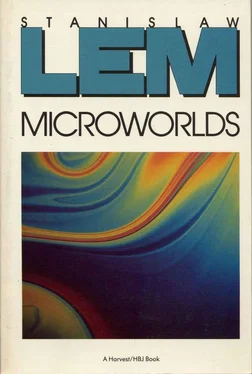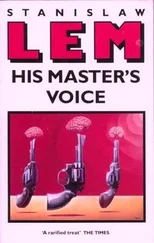I remember well my feelings when I read Mr. Sammler’s Planet, by Saul Bellow. Now, I thought that book very good — so good that I have read it several times. Indeed. But most of the things that Mr. Bellow attributed to his hero, Mr. Sammler, in recounting his experiences in a Poland occupied by the Germans, didn’t sound quite right to me. The skilled novelist must have done careful research before starting on the novel, and he made only one small mistake — giving a Polish maid a name that isn’t Polish. This error could have been corrected by a stroke of the pen. What didn’t seem right was the “aura” -the indescribable “something” that can be expressed in language perhaps only if one has experienced in person the specific situation that is to be described. The problem in the novel is not the unlikeliness of specific events. The most unlikely and incredible things did happen then. It is, rather, the total impression that evokes in me the feeling that Bellow learned of such events from hearsay, and was in the situation of a researcher who receives the individual parts of a specimen packaged in separate crates and then tries to put them together. It is as if oxygen, nitrogen, and water vapor and the fragrance of flowers were to be mixed in such a way as to evoke and bring to life the specific mood of a certain part of a forest at a certain morning hour. I do not know whether something like this would be totally impossible, but it would surely be difficult as hell. There is something wrong in Mr. Sammler’s Planet; some tiny inaccuracy got mixed into the compound. Those days have pulverized and exploded all narrative conventions that had previously been used in literature. The unfathomable futility of human life under the sway of mass murder cannot be conveyed by literary techniques in which individuals or small groups of persons form the core of the narrative. It is, perhaps, as if somebody tried by providing the most exact description of the molecules of which the body of Marilyn Monroe was composed to convey a full impression of her. That would be impossible. I do not know, of course, whether this sort of narrative inadequacy was the reason that I started writing science fiction, but I suppose — and this is a somewhat daring statement -that I began writing science fiction because it deals with human beings as a species (or, rather, with all possible species of intelligent beings, one of which happens to be the human species). At least, it should deal with the whole species, and not just with specific individuals, be they saints or monsters.
It is likely that, after my beginner’s attempts — that is to say, after my first science-fiction novels — I revolted for the same reason of narrative limitations against the paradigms of the genre as they developed and became fossilized in the United States. As long as I didn’t know current science fiction — and I didn’t know it for a long time, because up to 1956 or 1957 it was almost impossible to get foreign books in Poland — I believed that it had to be a further development of the starting position taken by H. G. Wells in The War of the Worlds. It was he who climbed into a general’s position, from which it was possible to survey the whole human species in an extreme situation. He anticipated a future filled with disasters, and I must admit that he was correct. During the war, when I read his novel several times, I was able to confirm his understanding of human psychology.
Today, I am of the opinion that my earliest science-fiction novels are devoid of any value (regardless of the fact that they had large editions everywhere and made me world-famous). I wrote these novels — for instance, The Astronauts, which was published in 1951, and was about an expedition to the planet Venus from a simplistically Utopian Earth — for reasons that I can still understand today, although in their plots and in the kind of world they depicted they were contrary to all my experience of life at the time. In these books, the evil world of reality was supposed to have suffered a sea change into a good one. In the postwar years, there seemed to be only this choice — between hope and despair, between a historically untenable optimism and a well-justified skepticism that was easily apt to turn into nihilism. Of course, I wanted to embrace optimism and hope!
However, my very first novel was a realistic one, which I wrote perhaps in order to rid myself of the weight of my war memories — to expel them like pus. But perhaps I wrote this book also in order not to forget; the one motive could well go together with the other. The novel is called The Hospital of Transfiguration, and it is about the fight of the staff of a hospital for the insane to save the inmates from being killed by the German occupiers. One German reviewer ventured the opinion that it was a kind of sequel to Thomas Mann’s The Magic Mountain. What was in Mann only a portent — only the distant hint of a then nearly invisible lightning, since the horrors to come were still hidden behind the horizon of the times — proves to be in my novel the final circle of Hell, the logical outcome of the predicted “decline of the West” in the mass exterminations. The village, the hospital for the mentally ill, the professional staff: none of the places and characters ever existed; they are all my invention. But mentally ill persons — and many others — were indeed murdered by the thousands in occupied Poland. I wrote The Hospital of Transfiguration in 1948, my last year as a student. It could not appear until 1955, however, since it didn’t conform to the then already reigning standards of Socialist Realism. In the meantime, I was, as I can say without exaggeration, very busy.
In 1946, we — my father, my mother, and I — moved from Lvov to Kraków, having lost all our possessions in the course of the war. My father, who was seventy-one years old, was forced, because of these reverses, to work in a hospital; there was no possibility that he could set up his own practice. We all lived in a single room in Kraków, and my father didn’t have the means to buy his own equipment. Purely by chance, I learned how I could financially help our family: I wrote several long stories for a weekly dime-novel series that featured a complete story in each issue. Considered as thrillers, they weren’t so bad. Aside from that, I wrote poems; they appeared in Tygodnik Powszechny, the Krakovian Catholic weekly. And two novellas — not science fiction proper but on the margin of fantasy — plus some odds and ends in various publications. But I did not take my writing very seriously.
In 1947, at the age of twenty-six, I became a junior research assistant for an organization called Konwersatorium Naukoznawcze (the Circle for the Science of Science), founded by Dr. Mieczyslaw Choynowski. To him I presented my most dearly held works: a theory of brain functions invented by me, and a philosophical treatise. He called both nonsense but took me under his tutelage. Thus, I was forced to read logic textbooks, scientific methodology, psychology, psychometrics (the theory of psychological testing), the history of natural science, and many other things. Although it was apparent that I couldn’t read English, I had to do the best I could with English-language books. These books proved so interesting that I had to crack them, dictionary in hand, as Champollion cracked his hieroglyphs. Since I had learned French at home and Latin and German in school, and had picked up some Russian, I somehow managed to get along. But to this day I can understand only written English. I can neither speak the language nor understand it when it is spoken. For the monthly Zycie Nauki (The Life of Science), I compiled surveys of scientific periodicals from the standpoint of the science of science. By doing so, I became involved in the wretched Lysenko affair, for in my survey I synopsized the controversy between him and the Soviet geneticists in what an official report from the ministry in charge of Polish universities called “a tendentious manner.” I held Lysenko’s doctrine of the inheritance of acquired characteristics to be ridiculous, and I was proved right after several years, but my taking this position had rather painful consequences for our monthly. Something similar happened a little later, when I perceived in Norbert Wiener’s and Claude E. Shannon’s cybernetics a new era not just for technological progress but also for the whole of civilization. At that time, cybernetics was considered in our country to be a fallacious pseudoscience.
Читать дальше












